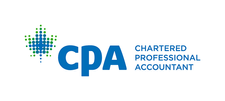Maximizing Tax Deductions: Good Bookkeeping Can Save You Money
Are you tired of paying too much in taxes every year? One way to reduce your tax liability and save money is by maximizing your tax deductions. And the key to doing that is good bookkeeping.
Proper bookkeeping practices can help you keep accurate financial records, identify all of the tax deductions you are eligible for, and ensure that you are taking advantage of them to the fullest extent possible. Here are some ways that good bookkeeping can help you maximize tax deductions and save money.
Keep Accurate Records: Good bookkeeping starts with keeping accurate and up-to-date financial records. This means keeping track of all income and expenses, organizing receipts and invoices, and reconciling accounts regularly. Accurate records can help you identify deductible expenses and provide documentation to support your deductions in case of an audit. Keeping accurate financial records enables individuals and businesses to manage their finances effectively. Accurate records help you track your income and expenses, monitor your cash flow, and make informed financial decisions. Without accurate records, it can be challenging to know how much money you’re making or spending and where it’s going. If you don’t keep accurate records, you may miss recording certain expenses and this will result with you not getting a tax deduction for them. This can be a costly mistake since nobody once to overpay taxes. By knowing that your financial records are accurate and up-to-date, you can have confidence in your financial decisions and avoid the stress and uncertainty that comes with disorganized or incomplete records. Ultimately, you get peace of mind.
Identify Deductible Expenses: There are many expenses that can be deducted from your taxable income, including business travel, office supplies, equipment, and even home office expenses. By keeping track of your expenses, you can identify all of the eligible deductions and ensure that you are claiming them on your tax return. In addition, when you keep track of your expenses, you are able to see where you are spending money. This helps you budget and forecast your expenditures. The result is you know whether you are spending too much or too little. By adequately categorizing your expenses, you will better manage your finances and gain insight on saving money.
Understand Deductions vs. Credits: When you pay for goods and services, you pay GST on purchases. Proper bookkeeping will ensure you claim all your deductions and, most importantly, your GST tax credits. GST is 100% refundable, so you don’t want to miss categorizing those amounts.
Business Growth: Bookkeeping plays a vital role in the growth and success of a business. By keeping accurate financial records, businesses can gain insights into their financial health and make informed decisions about future investments and growth strategies. Here are some ways that bookkeeping can help businesses grow:
- Identifying Profitability: By keeping track of all income and expenses, businesses can determine which products or services are most profitable. This information can be used to make informed pricing, marketing, and product development decisions.
- Budgeting and Planning: Accurate financial records can help businesses develop budgets and financial plans for the future. By analyzing past financial performance, companies can forecast future revenue and expenses and identify areas where they can reduce costs or increase revenue.
- Managing Cash Flow: Cash flow is essential to the success of any business. By keeping accurate records, companies can monitor their cash flow and ensure they have enough funds to cover expenses and invest in growth opportunities.
- Securing Financing: Lenders and investors typically require proof of a business’s financial stability and growth potential when seeking financing or investment. Accurate financial records can provide this proof and help companies to secure the funding they need to grow.
- Compliance: Compliance with state and federal laws and regulations is essential to the long-term success of a business. By keeping accurate financial records, companies can ensure that they are compliant with tax laws, labor laws, and other regulations.
Avoid Common Mistakes: When claiming deductions, mistakes can be costly. That’s why it’s essential to avoid common mistakes and ensure that your deductions are accurate and supported by documentation. Here are some common mistakes to avoid:
- Mixing Personal and Business Expenses: One of the most common mistakes businesses make is mixing personal and business expenses. It’s essential to keep personal expenses separate from business expenses and only claim deductions for expenses directly related to your business.
- Claiming Non-Deductible Expenses: Another mistake to avoid is deducting expenses that are not directly related to your business. For example, if you work from home, you may be tempted to deduct your entire home mortgage payment or rent as a business expense. However, only the portion of your home used exclusively for your business is deductible.
- Failing to Keep Accurate Records: Accurate record-keeping is critical when claiming deductions. If you don’t keep accurate records, you may miss out on deductions you’re entitled to or risk an audit by the Canada Revenue Agency (CRA).
- Not Seeking Professional Help: Finally, failing to seek professional help can be a costly mistake. A tax professional can help you identify deductible expenses and ensure that your deductions are accurate and supported by documentation.
In conclusion, good bookkeeping is essential for maximizing tax deductions and saving money on your taxes. By keeping accurate records, identifying deductible expenses, understanding deductions vs. credits, maximizing deductions, and avoiding common mistakes, you can reduce your tax liability and keep more of your hard-earned money. So don’t neglect your bookkeeping – it could be costing you more than you think.

